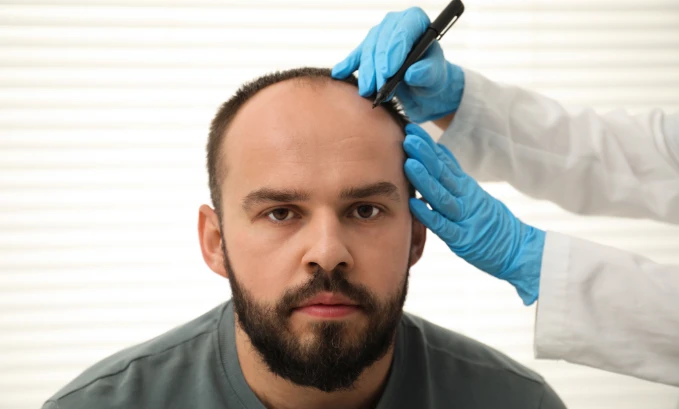
Getting arrested for a crime, you didn’t commit is a nightmare scenario that can turn your life upside down. The shock, confusion, and fear accompanying such an unjust accusation can be overwhelming. In times like these, it is crucial to understand your rights and take immediate, strategic action to protect yourself and ensure justice is served.
By understanding the correct course of action, you can navigate the legal system effectively and work towards proving your innocence. Remember, you are not alone in this battle. Seek the support of competent criminal lawyers who specializes in cases of wrongful accusations. They will be your advocate, working tirelessly to uncover the truth and protect your rights throughout the legal proceedings.
1. Stay Calm and Composed
The first and most important step when faced with an arrest for a crime you didn’t commit is to remain calm and composed. Feeling scared, angry, or frustrated is natural, but acting impulsively or aggressively can exacerbate the situation.
Remember that your behavior during the arrest can impact how your case is perceived later. Stay cooperative and respectful, and avoid any resistance that could lead to additional charges.
2. Invoke Your Right to Remain Silent
The Fifth Amendment to the United States Constitution guarantees the right to silence upon arrest. Declare emphatically that you want to use this privilege. Only give interviews or statements about the case with your lawyer present. If you want to protect your right not to incriminate yourself, you should not say anything that could be used against you.
3. Request Legal Representation
One of the most critical steps you should take after an arrest is to request an attorney. As soon as possible, explicitly ask for a lawyer. This fundamental right is enshrined in the Sixth Amendment, ensuring that you have legal representation during the legal process.
Your attorney will look out for your best interests, help you through the legal system, and craft an effective counterclaim tailored to your circumstances.
4. Avoid Providing Statements
While interacting with law enforcement, it is crucial to be cautious and only provides statements with your attorney present. Innocent individuals may unknowingly say or do things that could be misinterpreted or twisted to fit the prosecution’s narrative.
Politely decline to answer questions until you have consulted with your lawyer. Cooperate within the boundaries of the law and refrain from signing any documents without your attorney’s advice.
5. Gather Evidence and Identify Witnesses
To establish your innocence, it is essential to gather evidence and identify witnesses who can support your alibi or provide evidence that contradicts the accusations against you.
Make a comprehensive list of potential witnesses and collect any relevant documents, photographs, or videos that can help establish your whereabouts during the alleged crime. Your attorney can assist you in assessing the value and admissibility of the evidence you gather.
6. Document All Interactions
Keep a meticulous record of all interactions with law enforcement throughout the arrest and investigation process. Note down the dates, times, locations, and the names of the officers involved in each encounter.
This information may prove vital later when building your defense or addressing any potential misconduct or procedural errors. Documenting the sequence of events can help your attorney identify inconsistencies and protect your rights.
7. Seek Legal Representation from a Competent Defense Attorney
Hiring a competent defense attorney specializing in the type of crime you are accused of is crucial. They will review the evidence against you, identify potential flaws in the prosecution’s case, and develop a strong defense strategy tailored to your situation. Research and select an experienced attorney with a proven track record, and ensure you maintain open and honest communication with them throughout the process.
8. Cooperate within Legal Boundaries
While maintaining your innocence, it’s important to cooperate with your attorney’s guidance within the legal boundaries. Follow their advice on interacting with law enforcement and the legal system. They will assist you in understanding the legal process, protecting your rights, and constructing a solid defense. Put your faith in your lawyer; they will do their best to get you the finest result.
9. Conduct a Thorough Investigation
Work closely with your attorney to conduct a thorough investigation into the case. They will assist you in gathering additional evidence, interviewing witnesses, and exploring any leads that could help establish your innocence.
Your attorney may also collaborate with investigators or hire experts to analyze the evidence or challenge the prosecution’s claims. This proactive approach will help strengthen your defense and expose any weaknesses in the prosecution’s case.
10. Attend Court Hearings and Follow Legal Procedures
It is essential to attend all court hearings and comply with the instructions provided by your attorney. Failing to appear or disregarding court procedures can have negative consequences for your case.
Show up prepared, dressed appropriately, and respectful in the courtroom. Follow your attorney’s guidance during the trial, and let them advocate on your behalf. Trust the legal process and rely on your attorney’s expertise to present your defense effectively.
Conclusion
Being arrested for a crime, you didn’t commit is an extremely challenging situation. Remember to remain calm, exercise your right to remain silent, seek legal representation, and work closely with your attorney throughout the legal process. With diligent effort and the assistance of a skilled defense lawyer, you can navigate through this difficult experience.













